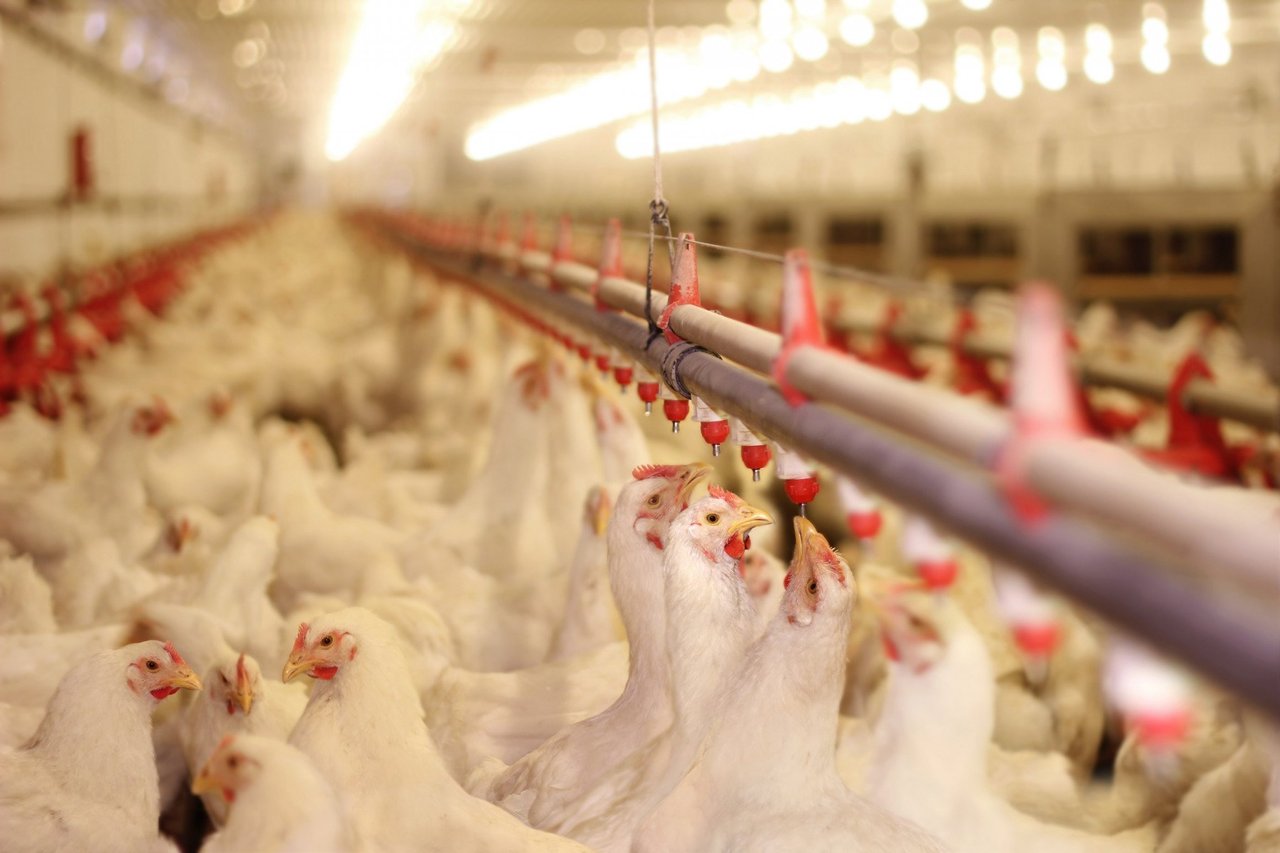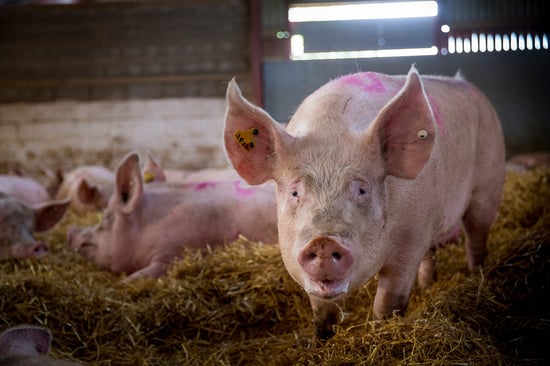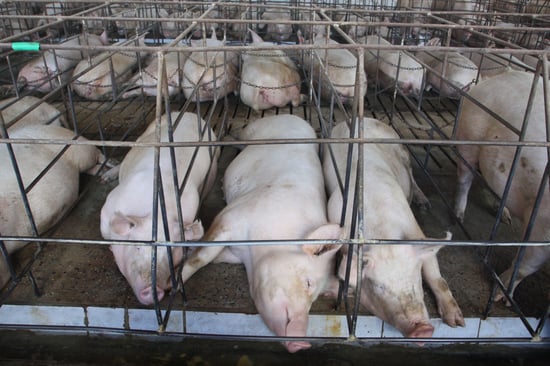
No Future For Factory Farming
Food systems
Factory farming is a global problem that requires a global solution
Every year, factory farming condemns billions of animals to lives of cruelty and suffering for a fast profit.
Farm animals experience relentless suffering at the hands of factory farming - trapped in cages, mutilated, and pumped full of antibiotics to stay alive.
The problem will get worse before it gets better.
The rapid growth in demand for cheap meat and dairy means large increases are expected globally including in Africa, Asia and Latin America in the imminent future.
At World Animal Protection, we work tirelessly to ensure farmed animals live good lives by transforming the global food system and attitudes towards farm animal welfare.
A moratorium on factory farms is urgently needed to safeguard farm animal welfare, our climate, health and the environment.
Wild animal habitats
Cruel factory farming is destroying wild animal habitats to grow crops to feed farmed animals, this is having a devastating impact by:
- Killing wildlife
- Worsening the climate crisis
- Poisoning our rivers
- Creating superbugs and diseases that can transfer to humans
We believe that the welfare, treatment and attitude towards farmed animals’ lives across the world must change. Forever.
Farm animal welfare focus: Stopping the destructive animal feed trade
Cruel factory farming relies on a global trade in crops to feed farmed animals. Tropical forests are destroyed to make way for crops destined for factory farms around the world.
The special dietary needs of factory-farmed animals bred for profit drive the global trade in destructive animal feed.
Almost 80% of the world’s soybean crop is fed to farmed animals, not people. Pesticides are also used extensively, contaminating rivers and killing people and wild animals.
A moratorium on factory farming and a shift in farm animal welfare legislation would:
- Free up land for communities to grow food for people
- Support global food security and address the climate crisis
- Relieve growing pressure on wild animal habitats and give wildlife a fighting chance
Factory farming is putting an extreme risk on public health and the planet’s future. Click the link below to read more in our latest report:
Factory-farmed animal treatment
Animals in factory farms are bred to grow fast, have large litters, lay high numbers of eggs, or produce a maximum amount of milk. This causes great suffering over their short lifetimes.
Chickens are bred to reach their slaughter weight about twice as quickly as 40 years ago, and their legs cannot keep pace with the rapid body growth. As a result, many chickens suffer from painful, sometimes crippling leg disorders.
Ending irresponsible antibiotic use in farming
Three-quarters of the world’s antibiotics are used in animals, most on factory farms to stop stressed animals from getting sick. Antibiotic overuse causes superbugs to emerge. These can escape from farms via workers, into the food chain and our environment and waterways.
Already, the superbug crisis is responsible for 1.27 million deaths every year due to antibiotics no longer being effective.
The same low farm animal welfare conditions that give rise to superbugs can also cause diseases like bird flu or swine flu to emerge from factory farms and transfer to humans.
A moratorium and shift in farm animal welfare legislation on factory farming is the most effective way to safeguard public health and our environment.
This will lead to fewer farmed animals living in high welfare conditions, and no longer being subjected to harmful antibiotics.
Putting a stop to the future of factory farming
We protect the welfare of farmed animals by raising awareness of the harmful host of activities that are causing them to suffer.
The safeguarding of farm animal welfare is paramount. We must put an end to the devastation caused by factory farming to ensure farmed animals live better lives, we achieve this through raising awareness of:
- The animal feed trade: The spike in cruel factory farming growth has a devastating impact on farmed and wild animals. There’s no bigger threat to the world’s animals, farmed and wild, than the expansion of factory farming
- Improving animal welfare on farms: We work with the food industry to improve animal welfare and keep animals in an environment where they can benefit from a life worth living
- Meat reduction: Encouraging less consumption of animal products to reduce animal suffering and protect our planet
- Sustainable finance: A shift in attitude from fuelling destructive factory farming to investment in humane and sustainable systems
- Promoting humane slaughter of farmed animals: To reduce animal cruelty and suffering
We are taking strides towards tackling the global problem with a global solution by:
- Proactive campaigning to help safeguard farm animals and encourage a global food system shift
- Producing and distributing animals in the wild and animals in farming reports
- Forming strategic alliances with like-minded supporters that want change
- Developing and building the case for humane sustainable alternatives
- Raising awareness and knowledge of animal cruelty and protection
- Ending the commercial exploitation of wildlife and farm animals
Our ambition
Factory farming and animal cruelty caused by current global food systems must end. For good.
Through shifting attitudes, safeguarding the way farm animals are treated, and implementing sustainable investment and practices, we can protect farm animals ensuring they live better lives as well as protecting our planet.
Are you ready to take action?
Join our mission and change the way the world works through people's power. Take action today and support our efforts to stop farm animal cruelty and suffering. Forever.

